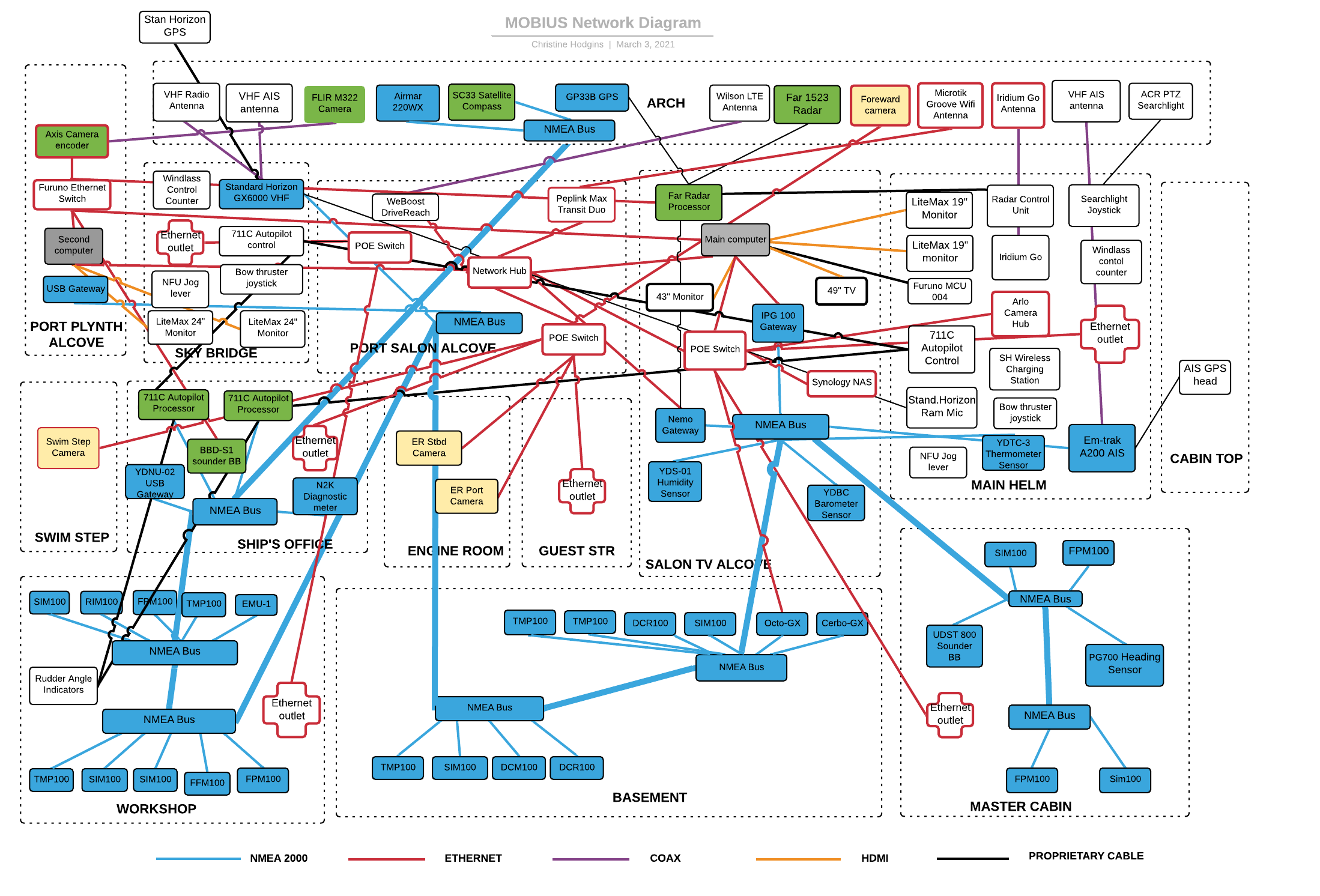ChristineKling
Veteran Member
I've been trying to decide what to use for our logbook and a friend recommended this Logbook Suite software which is available for iPad, Mac or PC. The developer is in Germany, but it's got all the website materials and manuals in English, and they have been around for more than 10 years with frequent upgrade releases.
So we have a Yacht Devices YDNR multiplexer/router that broadcasts the NMEA data. I've been testing out the iPad version of the Logbook, and it has a simple connection app that made that part really easy. What I really like about it is that it can pull data off the NMEA network (weather, the usual nav stuff, engine hours, battery SOC, tank levels, etc.) and either you can click to make those entries or you can pay more for the Pro version, and it will create hourly updates of that data in your log for you. Of course there are places where you can enter lots more data yourself - you can even add photos and journal entries. You can export to pdf and print it out if you like. My friend prints a copy of each year's (sailing season's) logbook.
However, the software is pretty pricey at 179 Euros for the Pro version on one device - not a subscription.
You can buy additional modules available for purchase, including an engine maintenance, repairs and installation module.
Wayne has his Excel spreadsheet for all his engine data, so we're not interested in that, but I want us to be more systematic about keeping a decent log now.
I'm a writer, and I believe in paying for intellectual property, so I don't have a problem with paying for really good software, but I'm also not sure I need something this complex.
Has anyone here used this? If so, what do you think of it? Any recommendations for something else?
FYI, we do not use OpenCPN, we use TimeZero for navigation, so any log that is available in OpenCPN won't work for me.
So we have a Yacht Devices YDNR multiplexer/router that broadcasts the NMEA data. I've been testing out the iPad version of the Logbook, and it has a simple connection app that made that part really easy. What I really like about it is that it can pull data off the NMEA network (weather, the usual nav stuff, engine hours, battery SOC, tank levels, etc.) and either you can click to make those entries or you can pay more for the Pro version, and it will create hourly updates of that data in your log for you. Of course there are places where you can enter lots more data yourself - you can even add photos and journal entries. You can export to pdf and print it out if you like. My friend prints a copy of each year's (sailing season's) logbook.
However, the software is pretty pricey at 179 Euros for the Pro version on one device - not a subscription.
You can buy additional modules available for purchase, including an engine maintenance, repairs and installation module.
Wayne has his Excel spreadsheet for all his engine data, so we're not interested in that, but I want us to be more systematic about keeping a decent log now.
I'm a writer, and I believe in paying for intellectual property, so I don't have a problem with paying for really good software, but I'm also not sure I need something this complex.
Has anyone here used this? If so, what do you think of it? Any recommendations for something else?
FYI, we do not use OpenCPN, we use TimeZero for navigation, so any log that is available in OpenCPN won't work for me.



 Last I had read, Dirona was still hanging out in Scotland but about to go to port for food and repairs, which seem like yesterday, but I guess not.
Last I had read, Dirona was still hanging out in Scotland but about to go to port for food and repairs, which seem like yesterday, but I guess not. 

